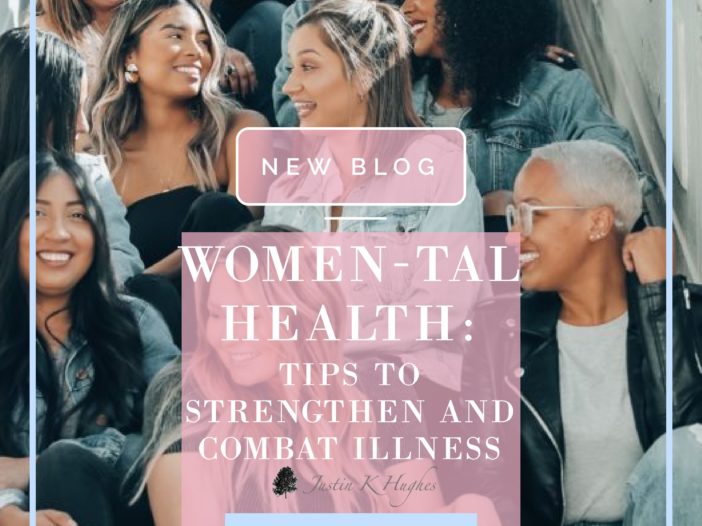
Women’s mental health is getting more attention now than maybe ever before, which I think is awesome. Acknowledging the beauty and uniqueness of strengths and struggles helps women to be more successful in their lives.
Here are some key considerations in mental health for women.
- In the U.S., women are twice as likely to be affected by Generalized Anxiety Disorder (GAD), Phobias, and Panic Disorder (PD). Additionally, depression and PTSD are slightly more common in women.
- Sexual abuse is higher in women, and women who are sexually abused experience much more depression. Just for the record, Major Depression is the single most debilitating disorder on the face of this planet (accounting for cancer, heart disease, anxiety, etc.).
- While women seek treatment more, they also feel more stigmatized in pursuing mental health treatment.
- Women of color see much higher stigma in pursuing treatment (Regis College).
- Hormone levels affect mood and mental health.
- Eating disorders impact women twice as much.
- Perinatal (around childbirth) impacts can be significant, along with the spectrum of perimenopause (around menopause)- the likely most well known impact is depression during these transitional phases, but many other symptoms can result, such as obsessions, intrusive thoughts, anxiety, panic, and more.
- Remember that anxiety and depression might look like any of the following (Regis College):
- “Feelings of sadness, hopelessness, uselessness, or emptiness
- Crying frequently
- No longer enjoying favorite activities
- Loss of energy
- Inability to focus, remember, or decide
- Inability to sleep, sleeping too much, or struggling to get out of bed
- Loss of appetite, weight loss, or overeating in an attempt to “feel better”
- Thoughts of self-harm, death, or suicide
- Persistent headaches, nausea, or other physical pain that doesn’t improve with treatment
- Becoming easily annoyed or angered…
- Chronic irritability or nervousness
- Feelings of impending doom or disaster
- Racing heartbeat, hyperventilating, sweating, or trembling
- Weakness or tiredness
- Inability to concentrate
- Sleeplessness
- Stomach aches or other digestive problems”
- Remember that anxiety and depression might look like any of the following (Regis College):
- More likely to internalize emotions.
- Women use substances less than men, but become addicted more quickly.
- Feel a higher load of stress and anxiety.
- Reproductive health problems in women lead to poorer outcomes in their mental health.
- Impacts of violence have a significant impact on emotional well-being, and there are several unique factors in violence against women (VAW).
- Women are treated 50% more for mental disorders, which is probably good news in light of feeling more stigma as noted already.
Here’s some of the key standouts to be encouraged with- or go encourage someone today:
- Women appear to possess higher emotional intelligence.
- Greater appreciation of beauty.
- Resilience and perseverance appear higher.
- Women tend to be people-centric and focus on relationships more than “things.”
Some key tips oriented specifically towards women:
- Stay connected in relationship; you not only benefit from it powerfully but typically possess higher relational skills out of the gate.
- You have differences that benefit you to attend to, so biologically appreciating these is important. For example, you need more sunshine and vitamin D. Take advantage of it.
- Capitalize on tools and supports that help decrease stigma to do what you need to do. Maybe it’s getting yourself some encouragement to seek a therapist, validation it’s okay to take a medication or supplement, or getting support to be assertive for your actual needs related to hormone levels, such as asking for a break, pursuing a task or activity that’s life-giving, or just permission to be where you are at that moment.
- Give yourself credit (and find people who can do so with you) that there are unique ways you support others, carry burdens, and walk through life. These challenges and strengths are real. “Haters gonna hate,” so if someone doesn’t respect it, that doesn’t mean it’s not true.
Last of all- I scoured the web to find two resources for you: Women’s Mental Health 101: Statistics, Symptoms & Resources and The American Psychiatric Association’s Fact Sheet. Let me just say I’m grateful for the women in my life and hope to always support their health- I don’t know where I’d be / I wouldn’t be here without you! 🙂








Leave a Reply